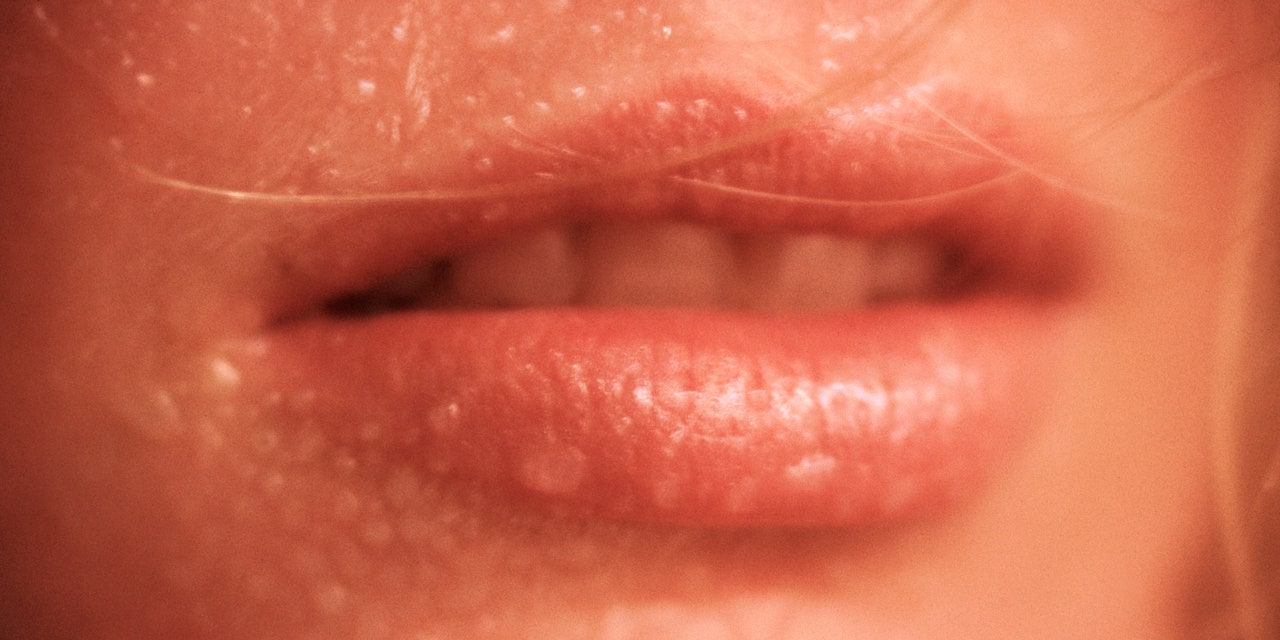[ad_1]
If you clicked on this article, I’m guessing you know the frustrations of sweating buckets from your face in the summertime. First you feel a little toasty, then a film of perspiration collects on your forehead, and before long, beads of sweat are pouring down your cheeks and dripping off your chin. It’s uncomfortable. It’s annoying. It’s hell.
Face sweat is a pretty common conundrum. Your face is packed with sweat glands that pump out moisture when it’s hot and muggy out to help keep you cool (a process called thermoregulation). Basically, everyone experiences face sweat to some degree—it’s just the price we pay to enjoy the beautiful summer weather.
That being said, certain people’s faces get excessively moist. There are two main reasons for this, the first of which is primary hyperhidrosis, a condition in which your sweat glands are hyperactive. Hyperhidrosis is largely genetic and can be triggered by heat, along with stress and anxiety and certain foods (like coffee). There’s no guide for what constitutes “excessive sweating,” but here are a few clues that something may be amiss: Your clothes are constantly soaked, your skin stays wet for hours on end, or you’re prone to skin infections in the areas you tend to get sweaty.
There’s also secondary hyperhidrosis, where facial sweating is triggered by an underlying condition like pregnancy, menopause, fever, an infection, a metabolic problem, or heart disease, among others. Secondary hyperhidrosis can also be caused by certain medications, including antidepressants (like nortriptyline and desipramine), opiates, and some nonsteroidal anti-inflammatory medications (NSAIDs).
Your stress levels, body size, and age can also influence how much you perspire, as can certain lifestyle factors, like smoking cigarettes, drinking alcohol, and consuming caffeine. It’s normal to have swampier days from time to time, but if the sweat doesn’t relent and starts impacting your ability to go about your everyday life, it’s probably time to see a doctor.
“Although sweating is an essential function of the body, too much sweat, particularly on the face, can be uncomfortable, inconvenient, and embarrassing,” Rebecca Marcus, MD, FAAD, board-certified dermatologist and founder of Maei MD, tells SELF. If you feel like your head becomes a spicket whenever it gets hot out, there are a few things you can do to stay cool and dry (other than, ya know, racing inside to get near some air conditioning). Here’s how to cope.
Stay hydrated.
You may presume that drinking more water equals more sweat (guilty!), but that’s not the case. Keeping your body hydrated actually helps regulate your body temperature so you won’t sweat quite as much, Shoshana Marmon, MD, PhD, FAAD, an assistant professor of dermatology at New York Medical College, tells SELF. “When dehydrated, the body can produce more sweat in an attempt to cool down,” says Dr. Marmon.
The fix: Drink water throughout the day, especially if you’re physically active or if it’s particularly toasty outside, Dr. Marmon says. The Mayo Clinic recommends between 11 to 16 cups of fluid a day, some of which can be consumed via water-rich foods like fruits and veggies. If you tend to lose track of how many cups of water you’ve thrown back each day, follow this simple rule: Drink whenever you feel thirsty. The goal is to rarely feel parched and for your pee to be colorless or a light yellow. Relatively clear pee equals less sweat.
Watch out for foods that make you sweat.
There are a handful of foods known to exacerbate sweating in some folks, per the Cleveland Clinic. The most common culprits are chocolate, citrusy foods, and spicy or hot foods (think: hot peppers, chili powder, spicy curries, horseradish, and wasabi). Spicy and hot foods contain an ingredient called capsaicin, which sends “a signal to the brain that something is burning and the body responds by sweating to cool it down,” says Dr. Marmon.
[ad_2]
Source link
